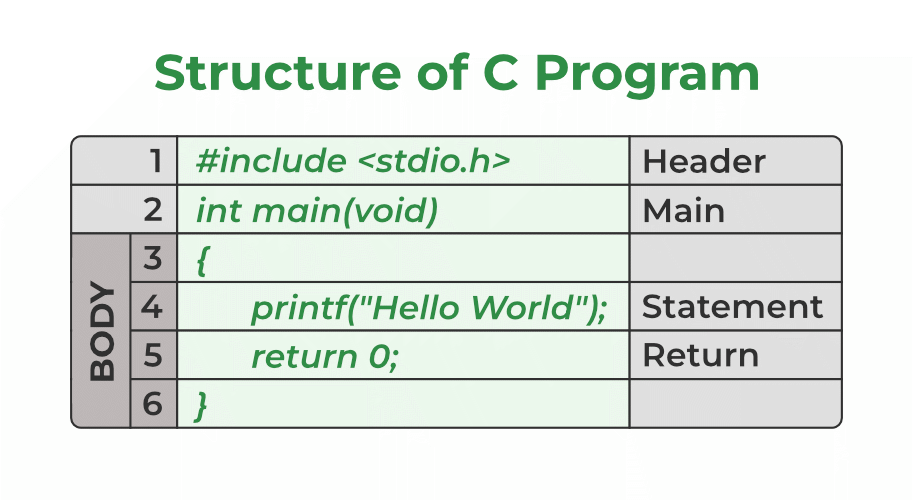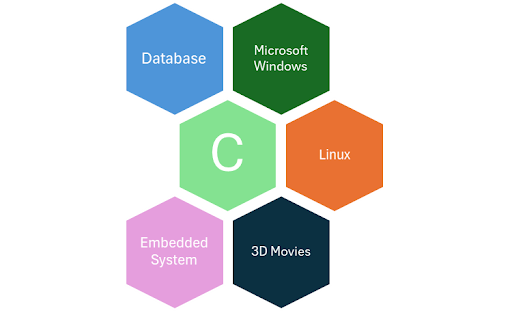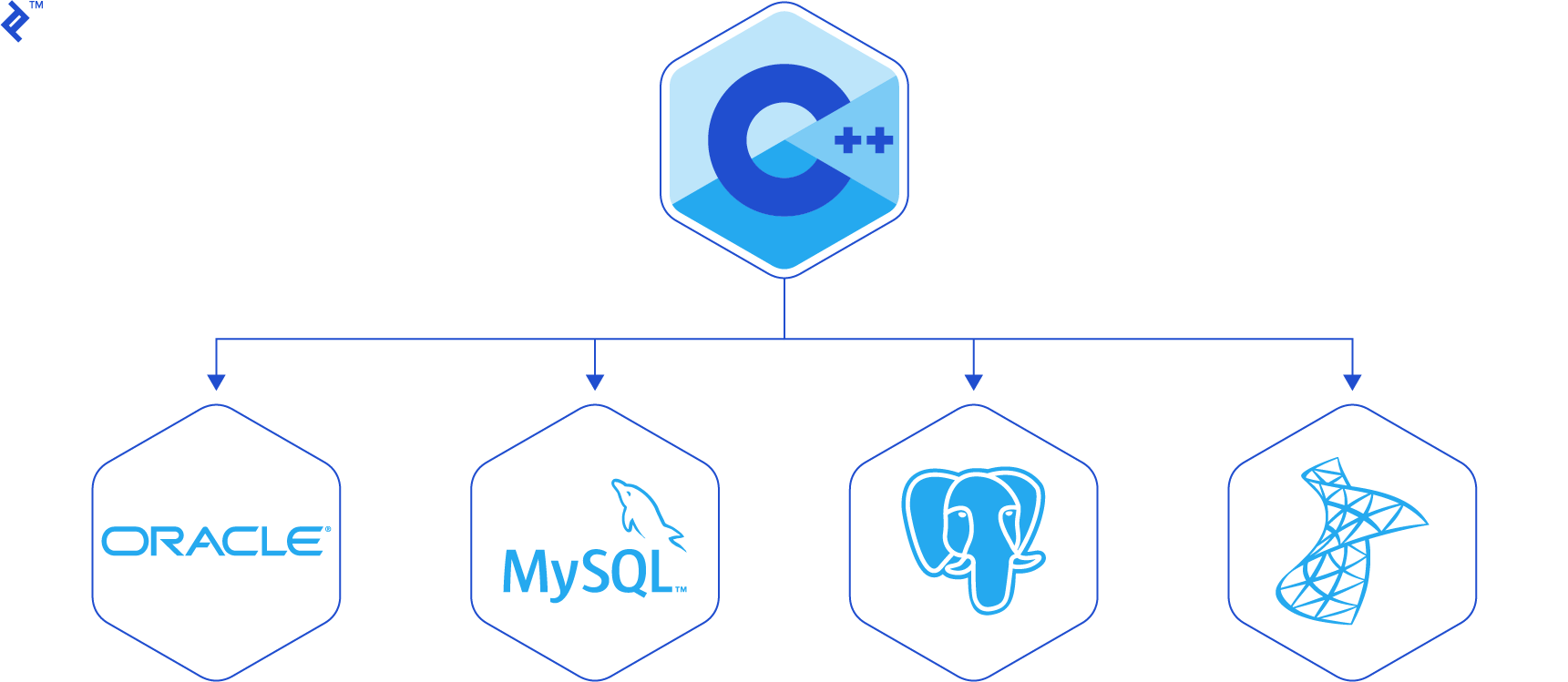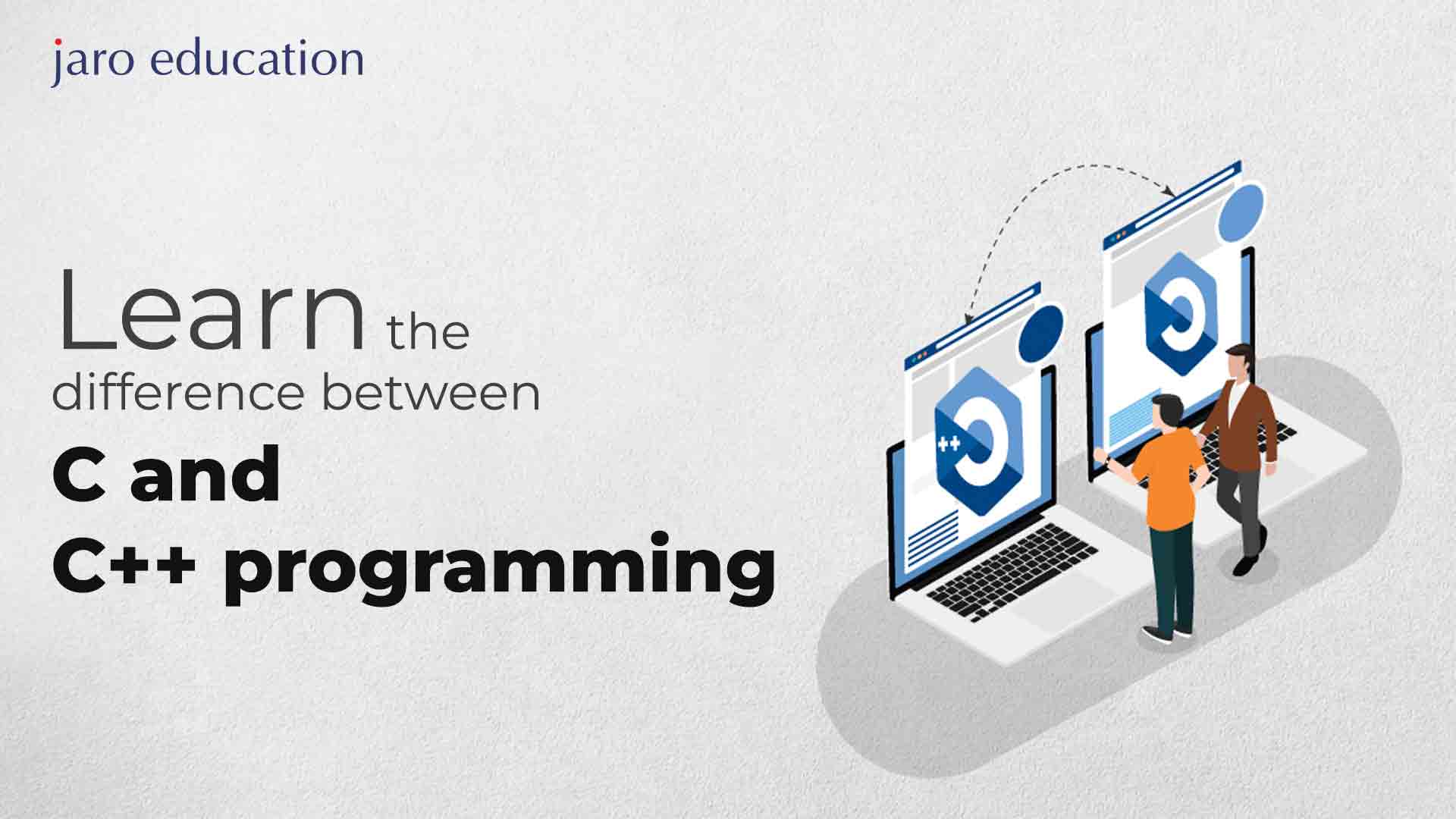Discover the Future of C Programming and its Unparalleled Role
Table of Contents

- jaro education
- 24, February 2023
- 4:47 am
If we are to ask a group of students about their respective career goals or the path they would like to choose, 7 out of 10 would answer “Software Engineering.”
It’s fascinating, right? This interest stems from the booming IT sector, which is creating a wealth of opportunities for young people to build successful careers in multinational companies with attractive salaries. However, to enter this world, one must have a strong command of programming languages. And despite the prevalence of many high-level languages in the industry, C programming continues to empower the world. Not only does it help build and manage applications and websites, but it also serves as a foundation for understanding complex algorithms and data structures, which are crucial for problem-solving in today’s tech landscape.
And to be honest, there are a plethora of reasons to believe that this language is not going anywhere. However, some people think that learning the C language is too obsolete and out of fashion. It’s time to bust this myth and show you why it’s worth learning C, its future, and the many benefits you can gain from mastering this programming language. Don’t worry—we’ll keep it simple and fun, too!
What Is the Programming Language C?
The C language in programming is a high-level language that provides an easy, powerful, and consistent interface for programming systems. This is one of the major reasons why most of the system software, application software, and embedded systems are built on it. C programming has always been influential and has been the base for driving many other languages, such as Java and C++. In fact, C has always been the first priority for developers in developing operating systems, network drivers, compilers, and many more.

*geeksforgeeks.org
What Makes the C Programming Language Top Choice for Coders?
As we have witnessed, the demand for other languages comes and goes, but C language in programming is not going anywhere, and it has been here for decades, being used in several applications. One of the most common yet popular reasons for C’s continued growth and popularity is its versatility – it can be used for multiple tasks, from low-level to high-level application development. So, let’s discuss some of the other features of c language in programming that make it the one-stop choice for many companies and developers, of course:
Easy to Understand
Those who are thinking of starting their career in C language often say that C language in programming is one of the easiest languages to understand. Knowing that, it can be used on multiple platforms, and applications written in it are much smoother, faster, and functions. This is the reason for validating the point that C is simple to use and easy to understand. Also, this language does not have that many difficult keywords and symbols, like other programming languages.
Quick Memory Management
Memory allocation in the C programming language can be done statically or dynamically. We are unable to predict at runtime how much space our data structure will use when we use dynamic allocation. On the other hand, we will need to allocate a specific amount of RAM before we can launch the application if we choose to use static allocation. But, C language in programming offers dynamic memory allocation, and therefore, programmers have the freedom to use memory, leading to efficient programs.
Simple Testing & Debugging
Because C language in programming is a completely typed programming language, the data structures and variables are expected to be declared before actual use. This inference clears the way for the compiler to check that the defined types are being properly used and discover some other problems at compile time.
Portable
The C language in programming is highly portable and can operate on nearly any machine. It maintains a sufficient distance from the hardware, allowing access to lower-level functions while also encouraging code portability.
As a core system programming language, C provides a high degree of flexibility to programmers. It can be compiled and run on a wide variety of platforms, architectural families, and machine types without incurring a significant performance loss. This is why it is often chosen to develop systems and programs that have demanding performance requirements.
Future Applications of the C Programming Language in Real-Time

As we have been repeating all over again, despite the prevalence of higher-level languages, c language in programming takes up the world. And to back up this, here we have mentioned some of the real-world application that shows the future of c language and why millions trust it:
Microsoft Windows
Do you know that the Microsoft Windows kernel is mainly created in C language in programming, while some parts are in assembly language? Yes, the world’s most popular used operating systems for decades, with 90% of the market share, have been powered by kernels written in C. This language’s efficiency and flexibility have made it the backbone of many system-level applications. As a result, C continues to be a necessary skill for developers looking to work in systems programming and beyond
Building Database
In the world of data, C is not just a language; it’s a trusty companion, helping programmers turn complex challenges into smart solutions. However, programmers use C language in programming to craft sophisticated database management systems, essentially software solutions that help maintain, store, retrieve, and manipulate data with ease.

*toptal.com
For the majority of programmers, developing a database with C is often the first choice, known for its extraordinary efficiency and performance in creating super backends that can handle colossal amounts of information with grace. But that isn’t all—C adds the power of various database libraries into the mix, providing programmers with dozens of functions that simplify data access and manipulation. Simply put, whether creating the core of a database engine or developing user-friendly applications, C remains an integral tool in the developer’s toolkit.
Linux
Linux is another computer operating system that is mostly written in c language for programming. As we know, about 95% of the world’s most powerful supercomputers run the Linux Kernel.
3D Movies
3D movies are produced through applications generally written in C and C++. Such applications need to be highly efficient and fast since they process a lot of data and perform many calculations in the second. The higher the efficiency, the less time that the artists and animators will be held up during the rendering of the shots, and more money is saved for the company.
Embedded Systems
Imagine waking up one day and going shopping. An alarm clock that wakes you is likely programmed in C. Afterward, you turn on your microwave to make your breakfast, which is also an embedded system, probably written in C. You turn on the TV while having breakfast; well, this is too embedded and is powered by C language in programming. Isn’t it surprising? Well, yes, and this is because C enables program developers to create software that can perform any task, from reading and writing from memory and interacting with hardware devices to controlling the flow of data.
Career Aspects in C Programmin
Different people have different thoughts regarding careers related to C, as some individuals want to learn another language, but some are comfortable with learning the C language. Even though the C programming language is simple to learn, it requires skill to have a productive career in this field. C programming is comprehensive and mainly used for creating different operating systems and network drivers, developing other programming languages for security purposes, and using kernels, tokens, etc. Despite many other highly popular programming languages, C is always in demand and has fantastic opportunities to build a career worldwide. It facilitates the application process for real-time programming positions.
In India, various roles, including Senior Engineer, Technical architect, and team lead, can build your career. The best part of having a C programming language as a skillset is that individuals can fit into any domain, be it banking, networking, IT, Education, management, etc. Almost every organisation needs a C programming developer. Many organisations have dedicated job positions and hierarchical levels specifically for C programmers, which sets them apart from programmers in other languages.
Want to Advance your Career in Programming? Here's The Way
Manipal University is one of the renowned universities recognised by the UGC and accredited by NAAC, AICTE, WES, and ICAS. All their certifications are evidence of the academic model, pedagogy, and quality of education. This university’s online degree programme opens the door to a vibrant landscape of career options just waiting to be explored.
In addition, their online BCA course includes access to Google Cloud Computing Foundations curriculum, hands-on labs, assessments, and capstone projects on topics ranging from cloud infrastructure, Big Data, ML, Application Development and much more. This course not only teaches you about C and C++ programming, but Java, DBMS, and networking are part of their syllabus. You can learn at your own pace, attend live classes, and write online proctored exams from home.
Programme Highlights
- Designed for immersive learning
- Get a Global Tech Perspective
- Career Guidance and Placement Support
- Cutting-Edge Digital Education Platform
- Practical experience and evaluations in cloud, big data, and machine learning
- Free Access to Google Cloud Computing Foundations
How Can Jaro Education Pave the Way to Career Success?
Do you need clarification about your career? Are you feeling stuck in a job that doesn’t ignite your passion? Let Jaro Education guide you towards your goals. Being a renowned online higher education and upskilling company, we are here to provide bespoke career counselling and academic support to individuals. We are associated with multiple institutions and colleges that provide the most comprehensive courses and programmes to build successful careers. If you’re enrolling in the BCA programme through Jaro Education, you can get the benefit of the following:
- Unparalleled career guidance and support
- Learn from the best-suited academic, faculty, and industry mentors
- Be a part of discussions and forums for enhanced learning
- Leverage peer-to-peer learning experience student support
- Immersive and lifelong learning experiences
Final Thoughts
If you want to be an aspiring coder and want to learn the A to Z of C language in programming, in that case, we recommend you enrol in the Bachelor of Computer Application (BCA) Online Degree Programme offered by Manipal University Jaipur. This course is indeed a comprehensive online boot camp that includes multiple projects, case studies, and interactive online classes. So, don’t just stand there—let’s make things happen by enrolling with Jaro Education and taking advantage of this opportunity to build a thriving career as a software developer.
Frequently Asked Questions
Coding is the chain that connects humans to devices. Modern technologies that we see in our lives, such as calculators, Smart TVs, and sensor mechanisms, use internal coding systems. Because computers don’t communicate in the same way humans do, coding serves as a bridge between the two. It translates human instructions into numerical sequences that computers can interpret and act upon.
C language in programming is a powerful language that helps developers to build complex software systems. Known for its speed and efficiency, C is also user-friendly, making it a favoured option for a wide range of applications. Additionally, C’s portability allows programs written in it to be seamlessly adapted to different platforms.
The future of c programming holds thrilling potential. By 2050, breakthroughs in quantum computing, artificial intelligence, and innovative programming languages could transform how we create and engage with code.
Python might be a good choice if you want to learn a simple and efficient language and are interested in tasks requiring low-level access to hardware or system functions. But if you want to learn a language that is more flexible and easy to use, and you are interested in tasks that require rapid development and high-level abstractions, C language in programming might be a better choice.









